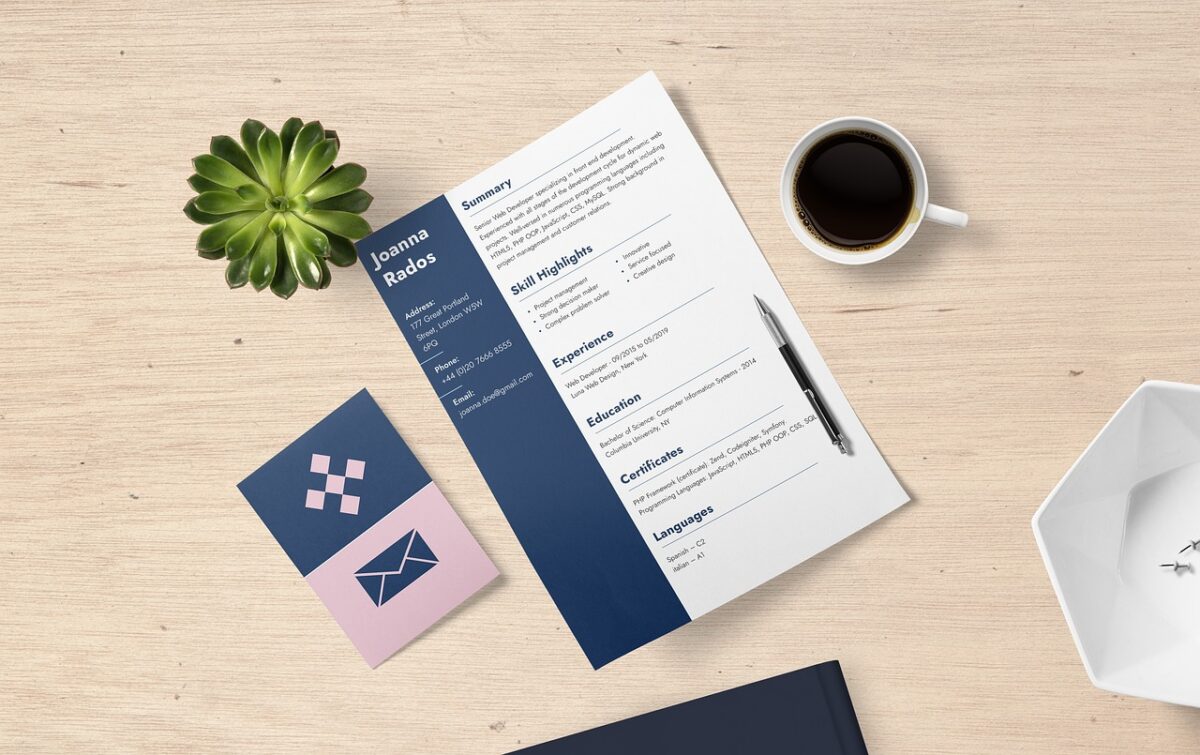How To Choose The Best Words When Writing A Job Description

Writing a compelling job description is an essential task for employers, recruiters, and hiring managers. Creating an effective job description comes early on in the hiring process and needs to be written before you can advertise a job. Choosing the best words is critical but can be challenging under two different scenarios.
Scenario 1: An employee leaves suddenly and unexpectedly, tempting you into hastily penning a job description so you can post a job ad and hope to attract suitable job seekers.
Scenario 2: You need to recruit an industry expert or senior executive and don’t know which words will attract top talent, creating a roadblock that is impossible to move.
There is nothing wrong with wanting or needing to move quickly or having a desire to write a job description that pulls in the top-tier of qualified candidates. However, word choice deserves your attention and is essential for meeting your hiring goals.
So, how do you choose the best words when writing a job description?
Quick Links:
- Choosing Words For You Job Title
- Choosing Good Job Description Words For Job Duties, Skills, And Tasks
- Importance Of Keyword Research When Writing Job Descriptions
- Incorporating SEO Best Practices In Job Postings
- Leveraging Nonverbal Communication And Body Language In Job Listings
- Role Of Leadership Skills In Attracting The Best Talent
- The Best Words To Use When You Write A Job Description
- Words For Job Description Writing FAQs
Highlights And Key Takeaways:
- Your job description vocabulary should be concise, free of jargon, and well researched.
- Good job description words can be identified by analysing the job title, duties, skills, tasks, and desirable traits.
Choosing Words For Your Job Title

Job descriptions and a job advert require a headline, and that means choosing job titles for your job posting. If you get your job titles wrong, job seekers may skip you by and never read your beautifully written job description.
Our top tips for writing a job title are to ensure it concisely and accurately describes the purpose of the job and is free from jargon. It is best not to use jargonistic vocabulary in your job descriptions either because they can be confusing, convolute their meaning, and disqualify quality candidates with transferable skills and knowledge. In short, accuracy trumps creativity when choosing a job title that speaks to your target audience.
Choosing Good Job Description Words For Job Duties, Skills, And Tasks

The duties, tasks, and skills are the meat and bones of a job description. Selecting powerful words that create desire and relay what makes your company unique will get potential candidates on the hook. The right words should generate excitement, grab the candidate’s attention, relate to the audience, and appeal to job seekers.
Starting with an example and using job description templates makes creating well-written, relevant content less daunting. You can get your recruitment process off to the right start with a job description template from our extensive library.
To determine if you have enough detail to attract the best candidates and turn them into new employees, review your job description, asking if it lets potential hires know:
- How the position fits in your organisation and team
- What are the work environment and company culture
- The objectives of work performed
- The skills the ideal candidate will possess (problem-solving, communication)
- The qualifications the right candidate will have (Bachelor’s degree, diploma)
Importance Of Keyword Research When Writing Job Descriptions
In the realm of crafting job descriptions, the art of selecting the right keywords is pivotal. This nuanced job description vocabulary goes beyond mere words; it’s about understanding the specific search terms that draw in the most suitable candidates. Imagine two companies advertising similar jobs for specific projects. The one that employs best practice in keyword utilisation, including highlighting degree requirements and relevant skills required, invariably attracts a more targeted audience. The impact of this can be profound. Effective keywords not only enhance visibility among a sea of the best job descriptions but also streamline hiring outcomes. Thoughtfully chosen keywords serve as beacons, guiding potential applicants through the digital maze directly to the roles that align with their expertise and aspirations.
Incorporating SEO Best Practices In Job Postings
Harnessing the power of SEO in job postings is not just about what the job entails, but about ensuring the right candidates find your open positions. Here’s the bad news: without SEO, even the most attractive job descriptions may go unnoticed. The good news? Integrating SEO best practices is simpler than you think. Start by crafting a clear picture of the role, using keywords that prospective candidates are likely to search for. This approach not only boosts your posting’s visibility on search engines but also attracts more applicants who are a perfect fit for your organisation. Remember, it’s not just about getting found; it’s about getting found by the right people.
Leveraging Nonverbal Communication And Body Language In Job Listings
Incorporating nonverbal communication and body language skills in job descriptions can make your job description stand out and resonate with a wider spectrum of great candidates. Highlighting these skills signifies to potential applicants the importance your organisation places on interpersonal dynamics and team cohesion. For roles involving line management, mentioning nonverbal aptitude indicates to applicants that being an effective line manager requires more than just technical skills. This approach not only attracts applicants with the right skill set but also those who value and understand the nuances of nonverbal interaction in the workplace.
Role Of Leadership Skills In Attracting The Best Talent
Highlighting leadership qualities in job descriptions is a strategic move to attract high-caliber applicants. Using job description adjectives that convey preferred qualifications and leadership traits helps the candidate understand what’s expected beyond technical requirements. By focusing on leadership rather than unnecessary qualifications, you not only engage candidates who meet the job requirements but also those who embody the type of person ideal for long-term employee retention. This approach ensures that the right talent, with a blend of leadership skills and technical know-how, is drawn to your organisation.
The Best Words To Use When You Write A Job Description
To compel qualified candidates to apply for your job listing for an existing or new position, use these words grouped by role type.
THE BEST WORDS FOR A MANAGEMENT JOB DESCRIPTION:
- Allocate
- Analyse
- Audit
- Authorise
- Control
- Encourage
- Enforce
- Guarantee
- Inspect
- Present
- Prevent
- Regulate
- Report
- Research
- Review
- Stop
- Verify
View our management job descriptions
THE BEST WORDS FOR DESIGN AND IT JOBS:
- Create
- Design
- Develop
- Device
- Examine
- Formulate
- Implement
- Maintain
- Plan
- Project
- Resolve
- Schedule
- Solve
- Test
THE BEST WORDS FOR RETAIL, SALES, AND MARKETING JOB DESCRIPTIONS:
- Acquire
- Advise
- Compile
- Distribute
- Forward
- Gather
- Get
- Give
- Guide
- Inform
- Issue
- Notify
- Obtain
- Procure
- Promote
- Provide
- Purchase
- Recruit
- Report
- Sell
- Show
- Suggest
- Supply
- Take
View our marketing job descriptions
View our sales job descriptions
View our retail job descriptions
THE BEST WORDS FOR FINANCE AND ADMINISTRATION JOBS
- Advise
- Administer
- Approve
- Arrange
- Check
- Compile
- Control
- Coordinate
- Distribute
- Establish
- Execute
- Issue
- Keep
- Manage
- Order
- Organise
- Reject
- Report
- Require
View our administration job descriptions
View our finance job descriptions
Words For Job Description Writing FAQs
Next, we answer your questions on how to write an effective job description for an existing or new job.
A great job description can be used to create a job advert and help you fill an open position. The uses of a job description don’t end here because it can be used for candidate screening, formulating interview questions, new employee onboarding, target setting, and performance appraisals. Job descriptions used by Human Resources can be intensely in-depth, so existing job descriptions may need to be shortened to become a concise description suitable for use as a job listing. Converting long sentences and paragraphs into bullet points is an excellent approach to give your job ad the focus it needs.
A job description that is to be used as a job post should include important company details (values, company culture, location) and the job’s duties, key job responsibilities, specific skills, qualifications, and personality traits.
Strong verbs create desire and appeal to the job seeker reading about your jobs. Use strong verbs to describe the role, relate with your ideal employee, and compel the person to apply.



